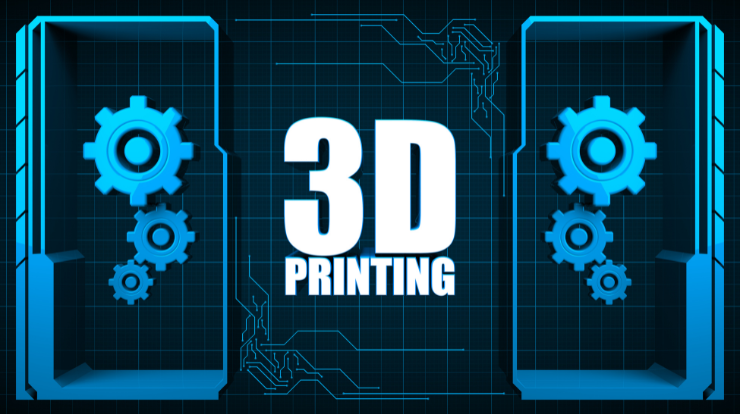3D printing technology has rapidly evolved in recent years, offering numerous opportunities across various industries in the United Arab Emirates (UAE). However, along with its promising applications, ensuring safety and regulatory compliance is paramount to protect individuals, property, and the environment.
In this comprehensive guide, we will delve into the safety regulations governing the use of 3D printing in the UAE, exploring key areas such as equipment safety, material regulations, environmental considerations, and occupational health standards.
Equipment Safety Regulations
The UAE imposes stringent regulations to ensure the safe operation of 3D printing equipment. These regulations encompass both the design and manufacturing standards of 3D printers, as well as their installation, operation, and maintenance protocols. Equipment safety standards are primarily enforced by regulatory bodies such as the Emirates Authority for Standardization and Metrology (ESMA) and the Dubai Municipality.
Manufacturers must adhere to internationally recognized safety standards, such as those set forth by the International Organization for Standardization (ISO) and the European Committee for Standardization (CEN). These standards cover aspects such as electrical safety, mechanical stability, emission control, and fire prevention measures.
Furthermore, operators of 3D printing facilities in the UAE are required to conduct regular inspections and maintenance checks to ensure that equipment remains in optimal working condition. This includes calibration of printing parameters, monitoring of temperature and pressure levels, and timely replacement of worn-out components to mitigate the risk of equipment malfunction or failure.
Material Regulations
The selection and use of printing materials in 3D printing processes are subject to strict regulations in the UAE. This is particularly important due to the diverse range of materials employed in additive manufacturing, including plastics, metals, ceramics, and composites.
Authorities in the UAE closely monitor the importation, distribution, and handling of 3D printing materials to prevent exposure to hazardous substances and ensure compliance with health and environmental standards. Materials must undergo rigorous testing and certification procedures to verify their safety, biocompatibility, and suitability for specific applications.
Additionally, regulations govern the disposal and recycling of waste materials generated during the 3D printing process to minimize environmental pollution and contamination risks. Proper waste management practices, including segregation, collection, and treatment of printing residues, are enforced to protect public health and preserve natural resources.
Environmental Considerations
Environmental sustainability is a key focus area in the regulation of 3D printing activities in the UAE. As additive manufacturing continues to expand, there is growing awareness of its potential environmental impacts, including energy consumption, emissions generation, and waste generation.
To address these concerns, the UAE has implemented measures to promote eco-friendly 3D printing practices, such as the use of renewable energy sources, energy-efficient equipment, and recyclable materials. Furthermore, initiatives are underway to develop closed-loop manufacturing systems that minimize material waste and promote circular economy principles.
Regulatory authorities collaborate with industry stakeholders to develop guidelines and best practices for reducing the carbon footprint of 3D printing operations. This includes optimizing printing parameters, implementing post-processing techniques to improve material utilization, and exploring alternative bio-based materials with lower environmental impact.
Occupational Health and Safety Standards
Protecting the health and safety of workers involved in 3D printing activities is a top priority for regulatory agencies in the UAE. Additive manufacturing processes may involve exposure to various hazards, including airborne particulates, chemical fumes, and noise pollution.
Employers are required to conduct risk assessments and implement appropriate control measures to mitigate occupational health risks associated with 3D printing operations.
This includes providing personal protective equipment (PPE), such as respirators, gloves, and safety goggles, as well as implementing engineering controls, such as ventilation systems and enclosure barriers, to minimize exposure to hazardous substances.
Furthermore, training and awareness programs are conducted to educate workers about potential health and safety hazards associated with 3D printing technology and promote safe work practices. Employees are trained in proper handling procedures, emergency response protocols, and hazard communication guidelines to ensure their well-being in the workplace.
Conclusion
In conclusion, the UAE has established comprehensive safety regulations to govern the use of 3D printing technology and ensure its responsible implementation across various industries. These regulations encompass equipment safety standards, material regulations, environmental considerations, and occupational health and safety standards to safeguard individuals, property, and the environment.
By adhering to these regulations, stakeholders in the 3D printing industry can mitigate risks, enhance operational efficiency, and foster sustainable growth while unlocking the full potential of additive manufacturing in the UAE. Regulatory compliance is essential to build trust, foster innovation, and promote the safe and responsible adoption of 3D printing technology in the UAE’s dynamic economy.
This includes providing personal protective equipment (PPE), such as respirators, gloves, and safety goggles, as well as implementing engineering controls, such as ventilation systems and enclosure barriers, to minimize exposure to hazardous substances.
